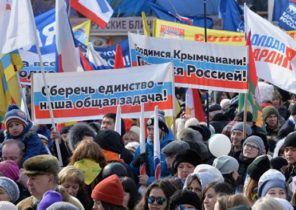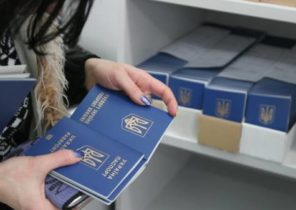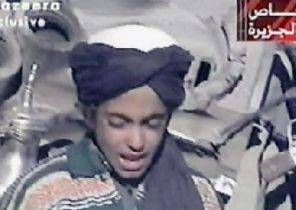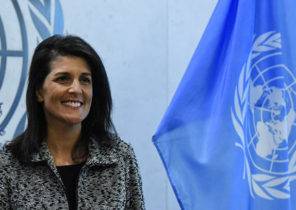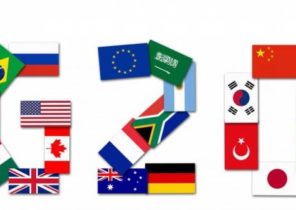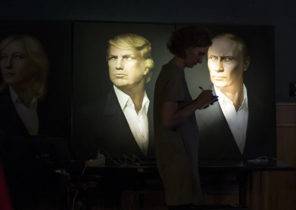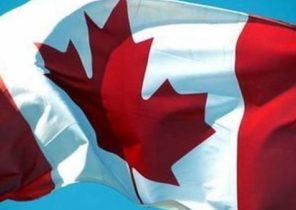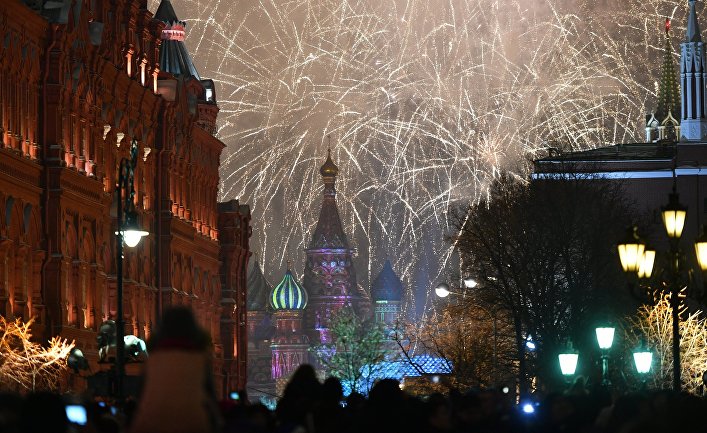
Moscow — In his triumphant new year address, Russian President thanked his country as a result of highly successful Russian authorities for 2016, in which the Kremlin leader has managed to strengthen the position of Russia abroad and to acquire a number of influential geopolitical friends.
2017 starts well for Putin. He just agreed to a truce in Syria, pushing the US away from the process, and won praise from President-elect Donald trump, refusing to retaliate after the decision of the Obama administration to punish Moscow for her alleged interference in the American elections.
“We work well and we have a result, — Putin said in his perpetuated on television all over the country a happy New year. — I would like to sincerely thank you for the victories and achievements, for the understanding, trust, real, heartfelt concern about Russia.”
Domestically Putin is more popular than ever. Abroad its image and strengthen the leadership role that Russia plays in the Syrian peace process, strengthening in countries of the Western Alliance in favour of friendship with Moscow nationalists and the prevailing idea that the Kremlin is able to influence elections in other countries with the help of hackers, Internet trolls and political mechanisms.
Even in the period of the highest power of the Soviet Union the idea that Moscow can intervene in the U.S. presidential election and try to change the outcome, looked like a plot for a political fiction. Now the CIA claims that something similar happened. Against this background, the temptation is to look at the list of Putin’s victories over the last 12 months and to assume that the Kremlin will not be able to stop nothing.
However, Russia is not the Soviet Union, now is not the cold war, and Moscow is not bent on world domination. Putin’s aims boil down to, to reduce US influence and to secure the vital interests of Russia, and its capabilities are still limited to a weak economy and a global presence, is incomparable with the us.
He can’t operate wherever he wants, cannot act alone, and in addition, much still depends on whether to cooperate with the President-elect, Donald trump, and how far will this collaboration.
Now trump looks more friendly-minded towards a former enemy of America than most of the Washington political establishment, which he has to lead. This friendliness, in particular, specifies its approving opinion in Twitter on Putin’s reaction to introduced by the Obama administration sanctions.
“Putin is trying to dictate to the world the new rules — with a little help from Western troublemakers, says senior researcher of the Moscow Carnegie center Andrei Kolesnikov. — While Russia remains economically weak and politically fragile.”
Indeed, Russia is now poorer than it was three years ago, when Putin challenged the West in the conflict in Ukraine. Writes Moscow Times, the gross domestic product of Russia reached a peak of $ 2.2 trillion in 2013 and have since fallen to 1.3 trillion, less than Italy, Brazil and Canada. According to the International monetary Fund gross domestic product per capita in Russia is below $ 9,000. The country continues to depend on exports of natural resources. Structural reforms of the economy and privatization of state enterprises has stalled.
According to the article, in which the online edition gazeta.ru summing up the year, the share of Russians who have savings has fallen from 72% in 2013 to 27% in 2016. For the first time in seven years, the Russians spend on food more than half of income.
“Putin’s Russia alone, and many Russians — the other, and they practically do not overlap”, the leading talk show on the radio station “Echo of Moscow” Alexei Gusarov.
Why is it important?
Because Putin has consolidated so much power that at present all the major decisions in Russia are accepted only to them.
“In Russia, only one person decides, which corresponds to Russian national interests and what is not. Neither society nor institutional factors do not play any noteworthy role,” says Moscow political analyst Vladimir Frolov.
According to the “Levada Center,” Putin’s rating is many months in a row does not fall below 80%. However, only 53% of Russians believe that Russia is moving in the right direction. Most likely, in 2018, Putin will be reelected — if he decides to run, but it is unclear how the growing economic difficulties could influence during this time, the mood of the voters.
Meanwhile, the ship of Putin’s state continues to sail forward, however, as in the case of the fuming Russian small aircraft carrier, which changed the balance of power in Syria, its success largely depends on whether he will allow others to succeed.
Putin is making progress, because he comes into the fight with the United States, only when at stake are the vital interests of Russia — and when Russia has a reasonable chance to win, says Simon saradzhyan, founder and Director of the Harvard Russia project Matters Belaruskogo center for science and international relations.
According to Saradzhyan, the key question is whether the United States in a particular case to respond using all its power. In Ukraine, a key American interests were not at stake, and the Obama administration ultimately decided that in Syria they are also not affected, says the analyst.
“Soviet leaders tried to oppose the United States everywhere — says saradzhyan. — Putin sets itself limited objectives, based on the parameters of the country — such as economic potential, demographics and other components of national power.”
At its annual press conference, broadcast on national television, Putin, in fact, confirmed it. Answering calls trump to increase the American nuclear Arsenal, he stressed that the ongoing Russian modernization is aimed at opposing aggressors, and not to join the arms race, “which we can’t afford”.
Not long ago, the Russian military began to talk of restoring the old Soviet bases in Cuba and Vietnam in addition to the new Outpost in Syria, but this idea was quickly forgotten.
Although Putin is in 2017 at the peak of power, the question remains, what will happen to Russia’s position, when trump will start to control the most powerful country in the world. Most likely, Moscow will continue attempts to expand its sphere of influence to the detriment of the United States, while attracting wherever possible — for example, in the area of counter-terrorism — a new administration to his side. Meanwhile, Putin is unlikely to directly challenge the new U.S. President.
“I think that Moscow believes that trump is able to hit back hard enough to cause Russia serious damage and is therefore better not to tease” — says Frolov.
